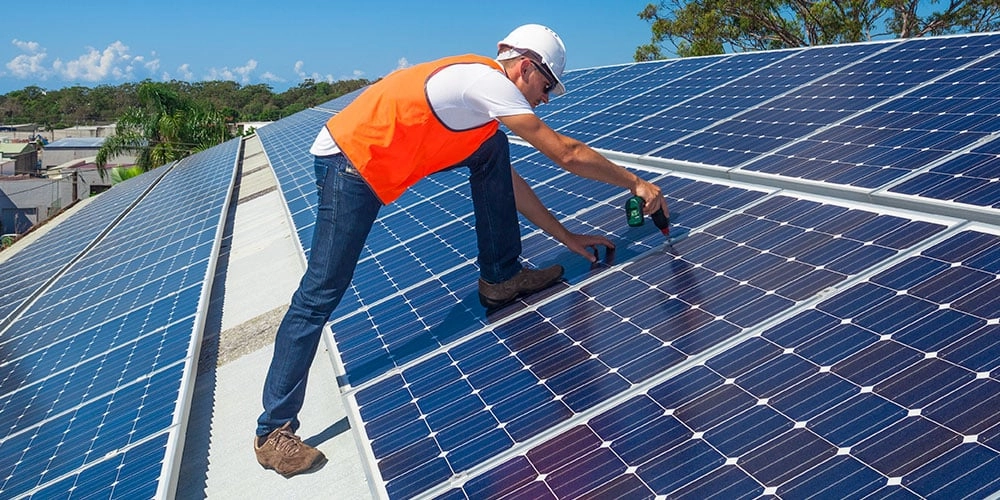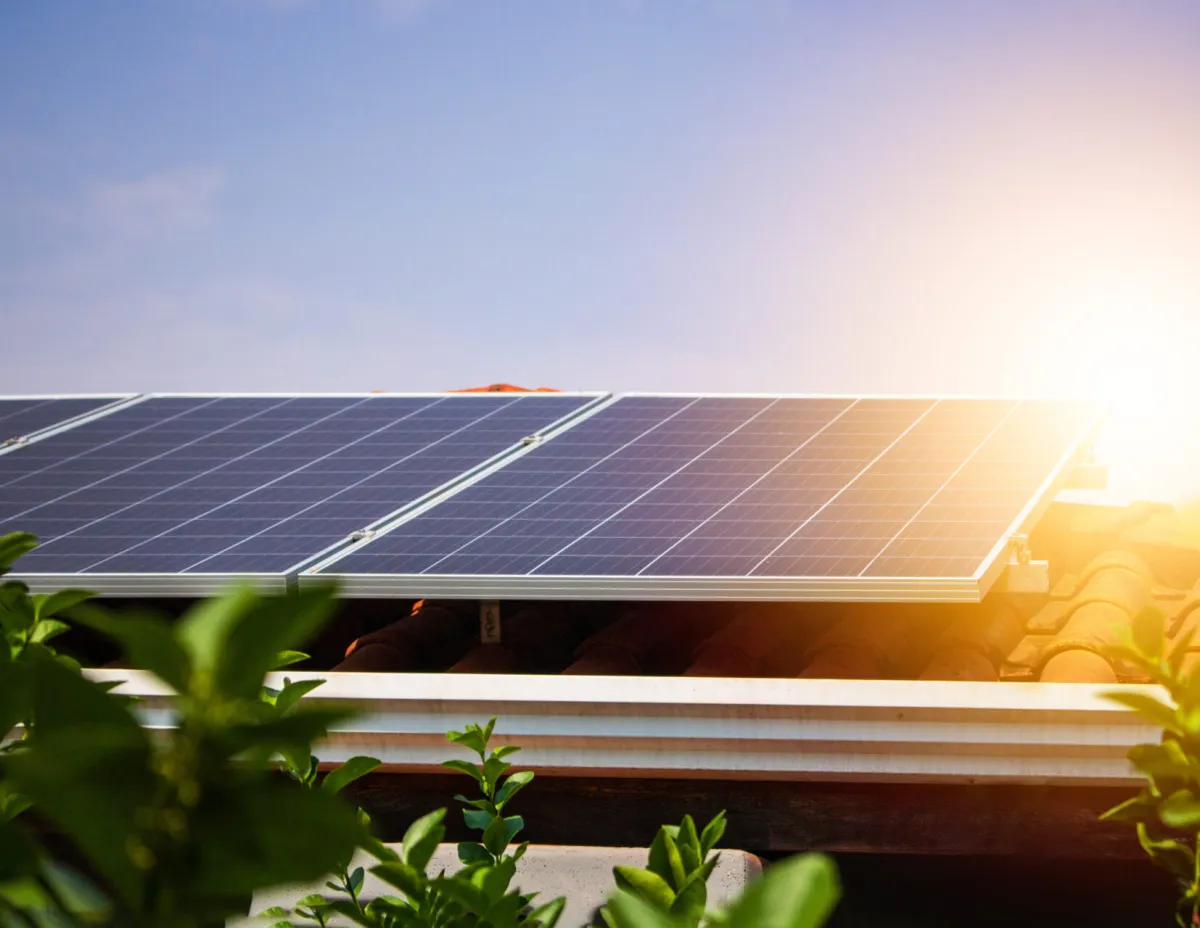Are you wondering if solar panels can do more than just power your home? Curious about whether they act as insulation to slash your energy bills?
As a homeowner, I know finding energy-efficient solutions that save money and boost comfort is a top priority. That’s why I’ve dug into the science and real-world benefits of solar panels as insulation, backed by trusted research and Cool Room Master’s expertise.
In this guide, you’ll discover how solar panels can cool your home, reduce energy costs, and complement traditional insulation—all while delivering clean power.
Let’s dive into the surprising ways solar panels can transform your home’s efficiency!
How Solar Panels Work A Quick Overview
Solar panels capture sunlight and turn it into electricity using photovoltaic (PV) cells. These cells are made of semiconductor materials that generate direct current (DC) when exposed to sunlight. This DC power is then converted into usable alternating current (AC) by an inverter to power your home or business. Besides generating energy, solar panels also sit on your roof, creating a slight barrier between the sun’s heat and your home, which can influence your home’s temperature. This basic process is what makes solar panels a smart choice for energy-efficient home upgrades while potentially offering solar panel insulation benefits.
Do Solar Panels Provide Insulation The Science Explained Daytime Cooling Effect Nighttime Heat Retention Factors Influencing Insulation

Solar panels do more than just generate electricity—they can also provide a kind of insulation for your home. Here’s how it works: during the day, solar panels absorb sunlight before it hits your roof. This daytime cooling effect means less heat gets transferred through your roof, keeping your home cooler and reducing the need for air conditioning.
At night, solar panels can help with heat retention by acting as an extra layer over your roof, slowing down heat loss. While they’re not a replacement for traditional insulation like foam boards or fiberglass, this passive effect can still contribute to keeping indoor temperatures steadier.
Several factors affect how much insulation benefit your solar panels provide:
- Panel type and material: Some panels absorb more heat, while others reflect sunlight better
- Roof structure and existing insulation: A well-insulated roof combined with solar panels boosts overall energy efficiency
- Installation method and tilt angle: Panels installed with a gap between the roof and the panel allow better airflow, improving the cooling effect
- Local climate: Areas with hot sunny days get more daytime cooling benefits, while cooler climates see more value from nighttime heat retention
Together, these variables shape the extent to which solar panels can contribute to your home’s insulation, making them a helpful but supplementary part of your energy-efficient home upgrades.
For more about enhancing your building’s insulation, check out our guide on how to run wires through EPS panels safely to keep energy loss minimal.
Quantifying the Insulation Benefits
Solar panels do more than just generate electricity—they can also contribute to your home’s insulation in measurable ways. While they’re not a replacement for traditional insulation, studies show that solar panels help reduce roof surface temperatures by shading your roof from direct sunlight. This shading can lower your attic temperature by up to 10 to 15 degrees Fahrenheit during hot days, which translates directly into less heat entering your living space and reduced cooling costs.
At night, solar panels can retain some warmth, which might slightly reduce heat loss, though this effect is less noticeable compared to daytime cooling. Overall, the solar panel insulation benefits help create a more energy-efficient home by complementing your existing insulation.
If you’re comparing energy savings, homes with solar panels installed often see a drop in air conditioning use and an increase in comfort, especially in warmer climates. This practical heat reduction boosts the overall value of your solar investment and enhances your home’s passive cooling.
For those curious about installation and roofing compatibility, you might want to check out how solar panels work with EPS panels for additional insulation insights.
Solar Panels vs Traditional Insulation A Comparison

When it comes to keeping your home comfortable and energy-efficient, solar panels and traditional insulation serve different but complementary roles. Traditional insulation like fiberglass batts, foam boards, or blown-in cellulose mainly slows down heat transfer, keeping warm air inside during winter and hot air out during summer. This directly impacts your heating and cooling costs.
Solar panels, on the other hand, don’t replace insulation but can add some insulation benefits by shading your roof and blocking solar heat. They create a barrier that reduces heat gain during the day, which helps lower your air conditioning costs. At night, they may help retain some heat in colder months but not as effectively as dedicated insulation.
Here’s how they stack up:
| Feature | Traditional Insulation | Solar Panels |
|---|---|---|
| Primary Function | Limits heat flow through walls and ceilings | Converts sunlight to electricity and reduces roof heat |
| Daytime Cooling Effect | Yes, slows heat entry | Yes, shades roof and lowers heat gain |
| Nighttime Heat Retention | Very effective | Somewhat helpful but limited |
| Energy Savings | Reduces heating and cooling load | Produces energy and cuts AC costs |
| Installation Cost | Usually lower upfront | Higher upfront but long-term savings |
In the US, combining solar panels with good roof insulation is the best way to maximize energy savings and comfort, especially for homes facing hot summers or cold winters. You get the passive cooling and heat reduction benefits from solar panels along with the solid thermal barrier from traditional insulation.
So, while solar panels offer some insulation benefits, they don’t replace the need for proper insulation if you want a truly energy-efficient home.
Local Considerations for Solar Panel Insulation Benefits
When thinking about how solar panels act as insulation, your local climate plays a big role. In hot, sunny regions, solar panels can help reduce roof heat, lowering your AC costs by offering passive cooling during the day. In cooler areas, panels can help retain some warmth at night, giving your home a bit of extra insulation.
Your local search habits show many homeowners are curious about solar panel insulation benefits, roof insulation with solar panels, and how solar energy savings work in real life. If you’re in the U.S., factoring in seasonal weather and energy costs will help you get the most from your setup.
At Cool Room Master, we focus on providing solutions tailored to your climate and insulation needs. Whether you want to boost energy efficiency or cut your cooling bills, our honest pricing and real quality ensure you’ll get practical benefits from your solar panel installation. We also offer expert advice on combining solar panels with other energy-efficient home upgrades for better overall performance.
For folks interested in optimized insulation, check out our guides on how to join coolroom panels step-by-step and can you screw into coolroom panels. These can be helpful when integrating solar panels with advanced insulation materials to maximize your home’s comfort.
Practical Tips for Maximizing Solar Panel Insulation Benefits
To get the most out of your solar panels for insulation and energy savings, here are some straightforward tips:
-
Proper Installation Angle
Make sure your solar panels are installed at the right angle to maximize sun exposure. This helps with energy efficiency and keeps your roof cooler by shading it better. -
Keep Panels Clean
Dirt and debris can reduce solar panel performance, which also limits their passive cooling effect. Regular cleaning improves energy output and insulation benefits. -
Add Roof Ventilation
Good attic ventilation combined with solar panels can boost heat reduction inside your home. It helps hot air escape, complementing the insulation effect. -
Use Reflective Roofing Materials
Pair solar panels with reflective or light-colored roofing to reduce heat absorption further. This combo strengthens the day cooling effect, lowering your air conditioning costs. -
Seal Gaps and Cracks
Insulation works best when your home envelope is tight. Make sure to seal any leaks around vents, skylights, or ducts to keep heat where you want it. -
Consider Battery Storage
Store excess solar energy for night use. While panels don’t provide much heat retention themselves, battery power can help keep your home comfortable after dark. -
Regular Maintenance Checks
Schedule yearly inspections to ensure panels and roofing remain in good condition, maintaining their insulation and energy-saving properties.
Applying these practical steps helps you enjoy the full solar panel insulation benefits, enhancing comfort and cutting down energy bills.
Why Choose Cool Room Master for Your Solar Journey
When it comes to installing solar panels that also provide insulation benefits, Cool Room Master stands out. We offer honest pricing with no hidden fees, so you know exactly what your investment will be. Our team focuses on real quality, using trusted solar technology designed to maximize energy savings while helping keep your home cooler and more comfortable.
We understand the unique needs of U.S. homeowners looking for energy-efficient home upgrades, especially those wanting to reduce AC costs with solar power and improve roof insulation. Our local expertise means we tailor solutions based on your climate and home setup, ensuring you get the most from your solar panel installation.
With Cool Room Master, you also get better service — from consultation to installation and ongoing support. Whether you’re seeking solar panel insulation benefits or want to boost your home’s passive cooling, we guide you every step of the way. Make the smart choice and let us help you save energy while enhancing your home comfort.
FAQs
Do solar panels act as insulation for my home?
Solar panels don’t replace traditional insulation, but they do add a layer on your roof that can help reduce heat transfer. This can keep your home cooler during the day and reduce energy costs.
Can solar panels help lower my AC bills?
Yes. Solar panels provide shade to your roof, which can reduce heat buildup and lessen the need for air conditioning. Plus, they generate electricity that can power your AC, further cutting costs.
Will solar panels keep my home warm at night?
Solar panels have limited heat retention abilities. While they block some heat loss, they aren’t designed to keep your home warm after dark like insulation does.
How much does solar panel installation cost?
Costs vary depending on system size and location. On average, installation in the US can range from $15,000 to $25,000 before incentives. It’s best to get a local quote for precise pricing.
Are solar panels worth it in colder climates?
Absolutely. Solar panels still provide energy savings in cooler weather and can help reduce roof heat loss. They work year-round and can improve your home’s energy efficiency.
Can I combine solar panels with traditional insulation?
Yes. Solar panels complement your existing insulation by providing passive cooling and reducing roof temperature. For best results, use both.
How does climate affect solar panel insulation benefits?
In hot climates, panels can greatly reduce cooling costs by shading your roof. In mild or colder areas, the benefit is more about energy generation and some heat retention.
Why choose Cool Room Master for solar panel installation?
We tailor energy-efficient home upgrades to your local climate and needs. Our expert team ensures you get maximum solar panel insulation benefits with reliable service and support.
